On 1st March, several representatives working in different areas of the BBC came to the University of Birmingham to emphasise why they want and need fresh, diverse voices to be part of the organisation, and to share information about the various opportunities students and graduates can apply for.
The day was split into two sections, with the morning focusing on apprenticeships and paid schemes for new entrants into the industry. It also featured an interview with Stuart Thomas, the Head of BBC Midlands, who spoke about the exciting developments taking place in the region and the new Tea Factory building that the BBC teams currently based in the Mailbox will move into in 2026. Students were encouraged to ask questions openly, sharing their thoughts about what the BBC is and taking the opportunity to hear first-hand about how they can stand out in an application and interview.
Ellen Bate, a student on the MA in Film & Television, provides this round up of the morning:
“The presentation started with the very energetic and charismatic Summaya, a senior journalist, radio presenter, and podcaster at the BBC. She handled the minor UoB technical hiccoughs brilliantly and made sure to engage with the crowd, starting with a Q&A. Because of her quick thinking, we as an audience were able to hear questions from others and the BBC employees’ responses. Summaya’s bubbly attitude made for a very welcoming introduction to the morning.
The BBC’s outreach manager for early careers, Allison, then took the stage. Allison began to talk us through the different opportunities which the BBC offer and how to apply for them. These included apprenticeships which can run from anywhere between 18 months to 4 years. The main take-away which Allison continued to repeat throughout was to be yourself. It was very reassuring to know that the BBC want individuals, no matter who they identify as; their sexuality, their race, their religion etc. The PowerPoint slides, which were emailed to those in attendance, were a really useful accompaniment to Allison’s talk as it very clearly showed where to go on the website to read about and apply to the different opportunities. In addition, they outlined the four main areas that the BBC focus on in their apprenticeships. These are production, design and engineering, journalism, and business.
“Don’t rule yourself out; rule yourself in”
Following this, we heard from Jaye who is a project manager for BBC Radio 1, 1Xtra, and Asian Network. Jaye focused on the opportunities within the music side of the industry. Several music schemes are held across the UK in an attempt to move the focus away from London. Again, the presentation was really useful at showing the step-by-step approach to learning about and applying to the different schemes available within BBC radio.
We then moved on to interview techniques. For me, this was the most important aspect of the talk. The top tips included doing your research before going into an interview, having a good CV full of work with local places that shows transferable skills, and to make the most of careers fairs and talks that crop up throughout our time at university. They also gave us the anagram:
- S – situation: set the scene and provide context.
- T – task: a task you were faced with and what responsibilities you had.
- A – action: what action did you take?
- R – result: conclusions and what you achieved.
Overall, the talk was a really good tool in learning more about the industry and what the BBC offer to those looking to get into the organisation.”
During the afternoon session, employees from the BBC’s RISE development scheme, which is for people from Black, Asian and Minority Ethnic backgrounds, shared stories about how their journeys at the BBC began. They also gave attendees an overview of what their different roles entail, from production management for unscripted TV, to working in HR and being the people behind what we see on the iPlayer home screen each week.
Many of the speakers emphasised how their entry to the BBC had been almost accidental, and how having an academic background or work experience in a completely different area had been beneficial. The transferable skills gained from jobs in hospitality or retail lend themselves strongly to the organisation and communication that are so integral to managing a production, for example; while having the initiative to start a blog or start to tell stories about issues that matter personally demonstrates journalistic passion.
Continue reading







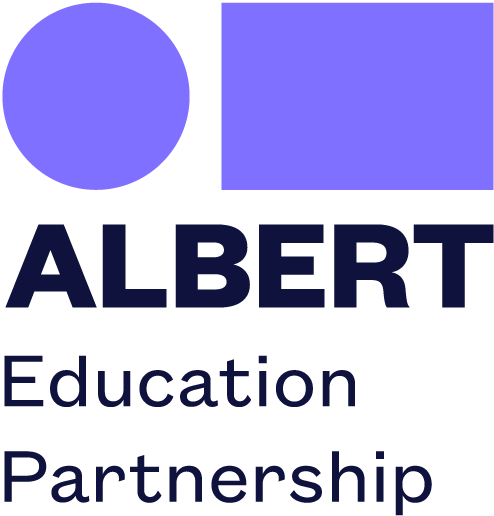
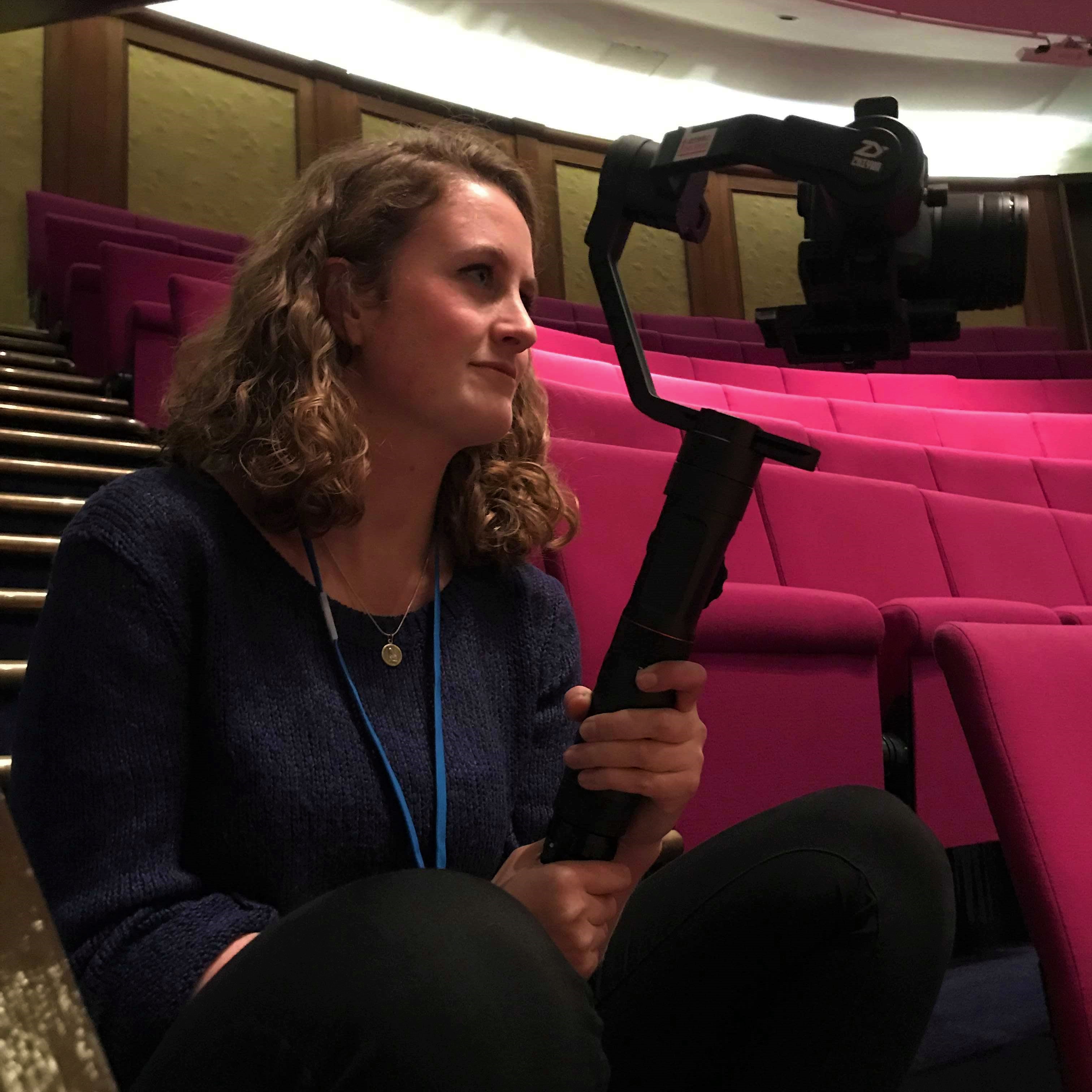
 interview this year’s presenter,
interview this year’s presenter, 

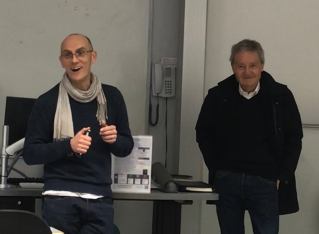
 the cinematographic industry, especially regarding the portrayal of women and children. This is just the beginning of a road that will bring sensible, valuable representations of society to our screens. I hope that ten years from now, when I have a family of my own, this will be a reality rather than a dream. Tony Garnett is one of the people who started this change; I hope that I can be a part of it too.
the cinematographic industry, especially regarding the portrayal of women and children. This is just the beginning of a road that will bring sensible, valuable representations of society to our screens. I hope that ten years from now, when I have a family of my own, this will be a reality rather than a dream. Tony Garnett is one of the people who started this change; I hope that I can be a part of it too.
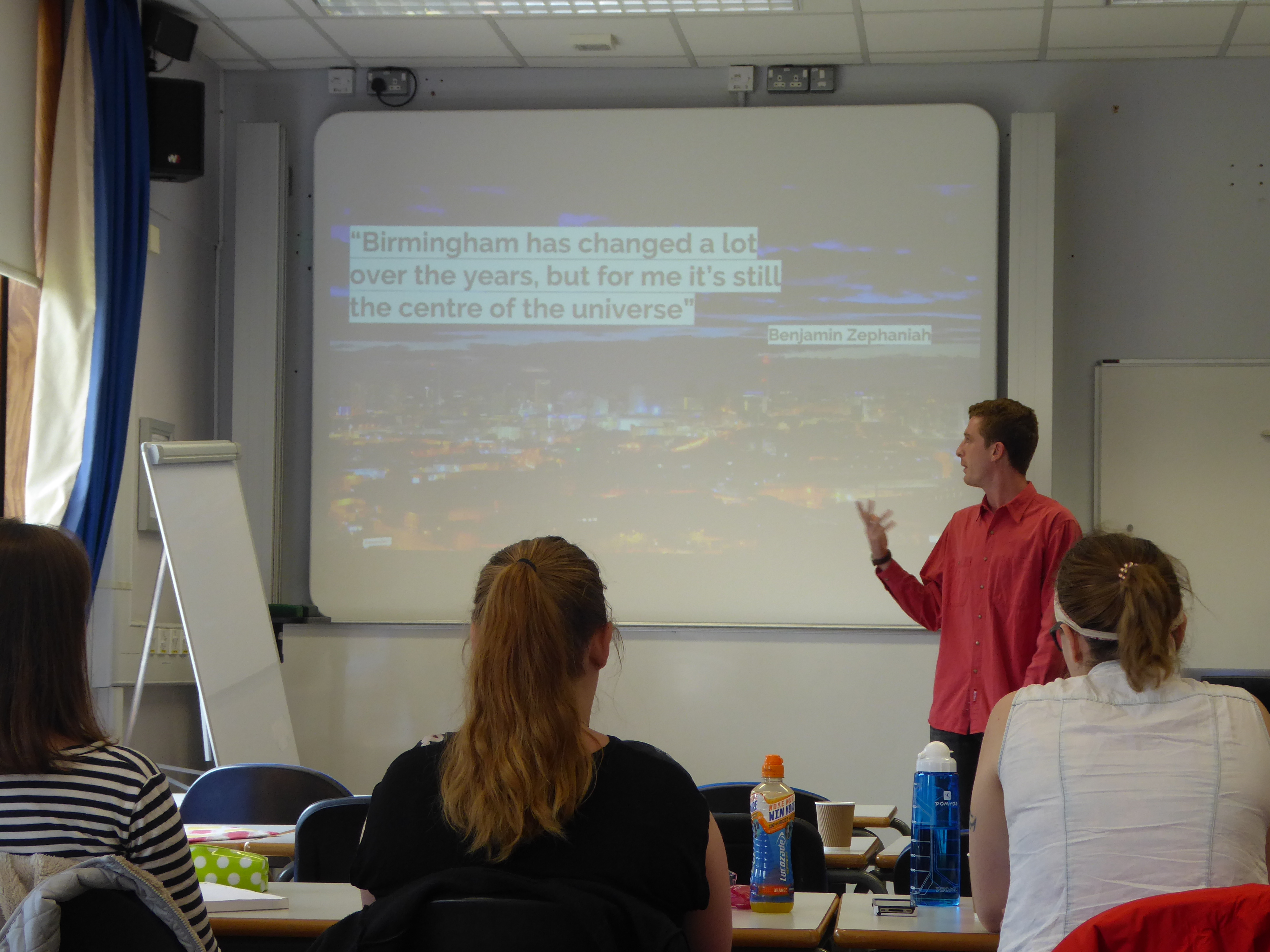
 It seems like only yesterday that I got my acceptance onto the MA in Film and Television: Research and Production at the University of Birmingham. Doing my undergrad (History) at UoB, it felt only natural for me to stay an extra year, on this fantastic course, as I loved the uni, and the opportunities the course could provide me, so much. In all honesty, my main reason for undertaking the MA was the placement aspect of the course, as I, like many other rookies looking to get a career in television or film, didn’t know where to start. I thought that the course would provide me with the necessary skills and training which would stand me in good stead to get a job in the television industry. And I was right.
It seems like only yesterday that I got my acceptance onto the MA in Film and Television: Research and Production at the University of Birmingham. Doing my undergrad (History) at UoB, it felt only natural for me to stay an extra year, on this fantastic course, as I loved the uni, and the opportunities the course could provide me, so much. In all honesty, my main reason for undertaking the MA was the placement aspect of the course, as I, like many other rookies looking to get a career in television or film, didn’t know where to start. I thought that the course would provide me with the necessary skills and training which would stand me in good stead to get a job in the television industry. And I was right.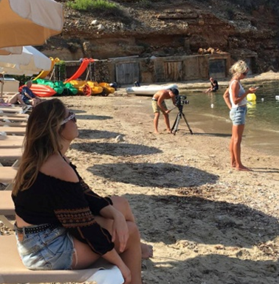

 Sarah Learmonth graduated in 2014 and went straight into a job with one of the companies where she undertook part of her MA placement. In this post she shares some of her highlights from the last two years, along with some useful tips for current students!
Sarah Learmonth graduated in 2014 and went straight into a job with one of the companies where she undertook part of her MA placement. In this post she shares some of her highlights from the last two years, along with some useful tips for current students! Most recently the MD of Zebra set up another company, Formatzone, which is currently working on a TV pilot with Laurence Llewelyn-Bowen. On this project I was left to my own devices a bit more, for example heading up a second unit shoot when the director was out at another location. It came along at just the right time, when I had gained the confidence to spread my wings a bit more and take on a bit more responsibility. The show’s looking great, so I think I did a good job! We have lots of ideas in the pipeline, I’m currently finishing one of my screenplays and I’m considering relaunching my YouTube channel, so it’s all go!
Most recently the MD of Zebra set up another company, Formatzone, which is currently working on a TV pilot with Laurence Llewelyn-Bowen. On this project I was left to my own devices a bit more, for example heading up a second unit shoot when the director was out at another location. It came along at just the right time, when I had gained the confidence to spread my wings a bit more and take on a bit more responsibility. The show’s looking great, so I think I did a good job! We have lots of ideas in the pipeline, I’m currently finishing one of my screenplays and I’m considering relaunching my YouTube channel, so it’s all go!